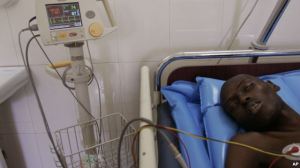In Senegal, while there has been substantial improvement in the healthcare industry, there are several issues that remain unaddressed. A key issue, that is easily solvable, is the lack of palliative care available for patients. The supply of morphine in Senegal is truly insufficient, leaving patients in chronic pain and depression. According to Human Rights Watch, Senegal currently stocks only enough morphine for around 200 patients each year. The reasoning behind the lack of palliative care can be attributed to the misconceptions of morphine and other pain relief medicines. Based on their culture and learning, it seems that many professional doctors are taught that morphine is a dangerous drug and should only be used as the last resort. Other times, a lot of patients are unwilling to take morphine because they associate the drug with dying.
There is a clear path to solving this problem and ensuring that patients can reduce their suffering. The first and foremost strategy is to produce more morphine for the hospitals. Considering the cheap cost of production, this is not a major investment of resources. It is a low cost, highly effective drug that can be beneficial to a lot of patients. Secondly, the government could change the regulations for prescribing morphine. Under this change, rural patients will have easier and longer term access to the drug when it is needed. In addition, there should be a specific training program for healthcare workers in palliative care. This will help solve the problems of misconception and increase the productive capacity of the nurses and doctors. Finally, the healthcare industry must focus on and improve patient relations by incorporating the demands and the needs of the patient into their diagnosis.
To end on a positive note, it is clear that Senegal is doing as much as it can to target this problem. Senegal spends around 12% of its budget on health, considerably higher than most of its neighbors. However, the priority of international donors on HIV/AIDS and child malnutrition has led to a clear lack of resources for other priority issues like pain relief treatment. If the importance of this issue is emphasized, it is evident that a lot of patients will receive accurate and relieving treatment.
Source: http://allafrica.com/stories/201310280367.html
Image Source: http://gdb.voanews.com/2D620B5B-FD3C-4D46-BCEB-D82B9028C092_mw1024_n_s.jpg

